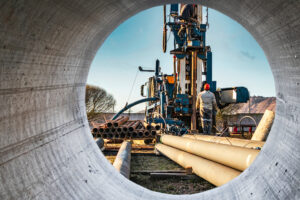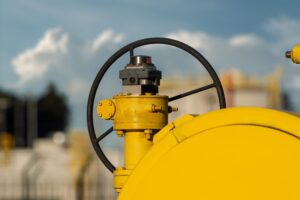Drill pipes, by their nature, regularly encounter materials that could reduce their efficiency or cause a time consuming and expensive breakdown. According to a recent figure, the cost of replacing, repairing, and inspecting drill strings- including the resulting down time- can run as high as $21 million over the average 21-year lifespan of a rig. So getting the most work out of drill strings and extending their useful life are paramount.
Drill protectors are a major factor in reducing costs and saving companies money on drill operations. With thorough and more frequent inspections and maintenance, drill pipe protectors can prevent damage from overuse and wear.
Having a large supply of pipe thread protectors on hand will reduce the cost and frequency involved in re-cutting tool joints, and the resulting loss in the length of tool joints. Manufacturers highly recommend that you always use pipe protectors whenever a drill pipe is to be laid down.
Among the causes of failure that protectors can help defray are corrosion, fatigue, and down hole wear. Guidelines provided by the American Petroleum Institute (API) allow for only a 20 percent loss of pipe wall thickness before the pipe will have to be junked and replaced at premium costs.
Protectors can be polyethylene with molded ribs, or pressed steel, depending on the need. The polyethylene type is most commonly used in the petroleum drilling industry because it is considered a more economical way to protect tool threads from point to point handling and environmental corrosion. For longer lasting protection, and to meet more of the API specifications, pressed steel protectors are available in most configurations.
For maximum effect, protectors must be installed and configured correctly. Misapplication may be due to crews not completely understanding tool joint loads exerted on the casing, and the way protectors can minimize those loads. Nevertheless, when properly used and regularly maintained, you will find that pipe protectors save money and also can protect the bottom line.




